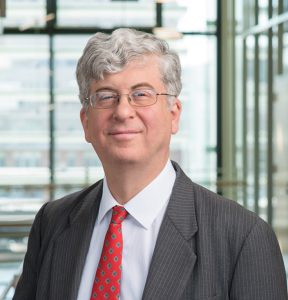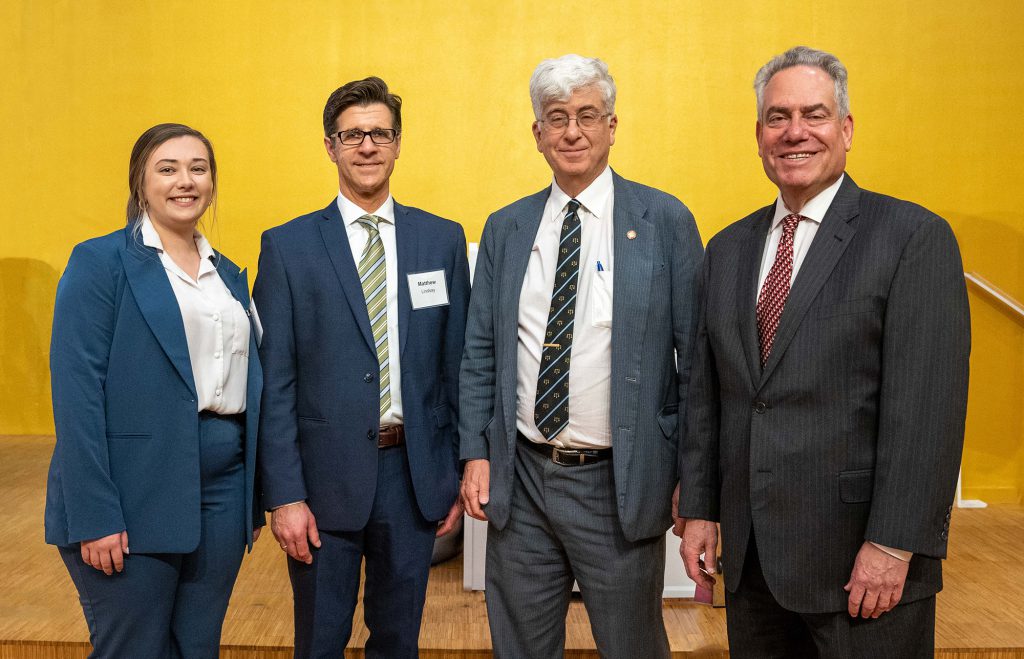By Hope Keller

Just four years out of Harvard Law School, a young Federal Trade Commission attorney named Robert Lande took on Robert Bork, the mandarin of U.S. antitrust thought whose 1978 book, The Antitrust Paradox, had become the foundational text of conservative competition policy.
In a 1982 Hastings Law Journal article, Lande contested Bork’s premise that the purpose of the antitrust laws was to promote economic efficiency, or what Bork – misleadingly, Lande says – called consumer welfare. A study of the legislative history of the main antitrust acts, including the 1890 Sherman Act, had shown Lande that Congress’ overriding concern was not efficiency but protecting consumers from exorbitant prices imposed by monopolies and cartels.
“You can find dozens and dozens of comments by Sen. (John) Sherman and the other members of Congress saying, ‘We really don’t like it when the mo
nopolies and cartels raise prices,’” Lande said in a recent interview. “And (Bork) now said, ‘What’s wrong with raising prices so long as it’s efficient?’”
Lande, who retired in June 2024 as Venable Professor of Law after 37 years at UBalt Law, also dismisses Bork’s use of the term “consumer welfare.”
“It had nothing to do with the welfare of consumers,” he says. “It was brilliant marketing.”
Neil Averitt, a former colleague of Lande’s at the FTC and an opinion columnist at FTC: Watch, remembers thinking at the time that Lande was crazy for tilting at antitrust orthodoxy.
“I thought, Bob, why are you writing that silly article?” recalls Averitt, who contributed a chapter to the most recent issue of the University of Baltimore Law Review, which was published as a Festschrift in honor of Lande and his scholarship.
Now, he says, “it turns out that Bob was entirely prescient.”
Arriving at UBalt Law
In 1987, after leaving the FTC and working briefly at Jones Day in Washington, D.C., Lande arrived at the UBalt School of Law. He had just published another law review article that again challenged Bork, by now a federal judge, who had recently been nominated by President Ronald Reagan to the Supreme Court.
“I published this article saying that Bork claims to be a strict constructionist, and all he wants to do is implement the will of Congress. But if you look at what he did in antitrust, it’s the opposite,” Lande says.
Lande gave the article to UBalt Law’s then-Dean Laurence Katz, who was, he knew, “on the other side of the ideological spectrum.”
“With a little bit of trepidation, I gave Larry Katz a copy of that article saying Bork is a hypocrite, don’t confirm him to the Supreme Court,” Lande says. “I had never taught a class yet.”
Katz was effusive in his praise.
“He said, ‘I’m so glad you published this article, this is wonderful. The point is, you publish what you want, and it makes the university look good and the law school look good,’” Lande recalls. “And I’m thinking, ‘Oh my goodness, this is called academic freedom!’”

Public intellectual
Professor John Bessler said he thinks of Lande as a public intellectual, one who has continued to carry the torch for an antitrust policy that “protects the little guy who doesn’t have the resources to hire lobbyists.”
“You could see it almost through the framework of human rights in a way, because if people can’t afford stuff, whether it’s products or services, they’re suffering,” says Bessler, who contributed a chapter to the Festschrift.
Bessler emphasizes that Lande’s competition policy scholarship also focused on consumer choice.
“A lot of what Bob’s work is all about is not just about the price alone,” Bessler says. “It’s also about having different options,” or real competition.
Continues Bessler: “If you’re going to have true capitalism, you have to have competition policy that’s effective. Bob wants actual competition, actual capitalism, not crony capitalism –or what some people call monopoly capitalism.”
Antitrust eminence and ‘delightful human’
Today, Lande has six national awards and 45 law review articles under his belt, as well as a textbook, several book chapters and 75 other articles published in mainstream outlets, including The Washington Post and The Atlantic, plus articles published in foreign legal publications. He has been on the SSRN list of the 15 most-downloaded antitrust scholars almost every year since 2008, and he is sought after by journalists covering antitrust cases, sometimes speaking with more than 20 reporters a day.
A former student recalls him fondly.
William Atkins, J.D./MBA ’92, who worked as Lande’s research assistant, says Lande cautioned him to beware the siren song and the trap of corporate law.
“He told me, ‘You’re going down to D.C.; be careful,’” says Atkins, a partner at Pillsbury Winthrop Shaw Pittman in Northern Virginia and Washington, D.C., who specializes in intellectual property law. “He said the first thing new lawyers do is they go to Fahrney’s, to buy an expensive pen, and wear it proudly in their chest pocket. Next, they lease a Mercedes. And then they buy a house in Bethesda. And they don’t even hear the handcuffs go click-click-click.”
Says Atkins, who might not have followed his professor’s advice to the letter: “He’s such a wonderful, delightful human.”
Happy warrior
Lande says he will miss interacting with students.
“One thing that would always give me a thrill is to compare how they do at the very beginning of the semester, when they can’t read the case, they can’t understand anything about it, to how well they can perform — even at the end of the first semester. It’s thrilling to watch,” he says. “To think that I might have had something to do with their progress is just wonderful.”
Lande’s colleagues will miss his upbeat nature in addition to his erudition.
“I guess you could call him the happy warrior of antitrust, because he doesn’t get jaded,” Bessler says. “He just accepts what’s happening at the moment and says, ‘Well, how can we make it better going forward?’”
Lande was honored at the law school on March 10, 2023 with a daylong symposium, “The Quest for Progressive Antitrust: A Symposium Honoring Professor Robert H. Lande.” Speakers included U.S. Assistant Attorney General for Antitrust Jonathan Kanter and U.S. Sen. Amy Klobuchar (D-Minn.), chair of the Senate Judiciary Antitrust Subcommittee. Also present were the authors of articles contributed to the Festschrift, including colleagues from the American Antitrust Institute, where Lande is a founding member of its board of directors.
The Festschrift was published as the Spring 2024 issue of the University of Baltimore Law Review and, at 514 pages, is its largest issue ever.
Hope Keller is a writer based in Connecticut
